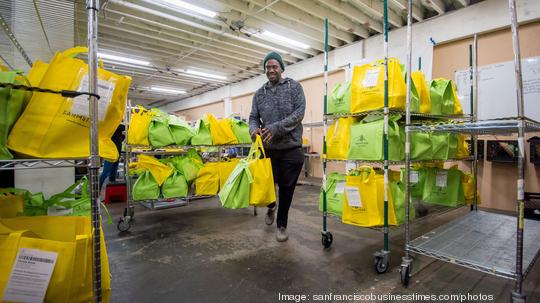
A same-day grocery delivery startup that launched in Raleigh last year is halting operations in all markets except the Bay Area.
Farmstead, based in San Francisco and backed by Circle K and Y Combinator, has ceased grocery deliveries in Charlotte, Raleigh, Miami and the greater Chicago area, in addition to cutting 22 percent of its operational staff, according to Insider.
“It's unclear what will happen next with the economy,” CEO Pradeep Elankumaran told the news site in early August. “We are a startup and are prudent in moments of economic uncertainty.”
Elankumaran said the majority of the company's revenue and profits for were still from its home region. The San Francisco warehouse will be the only one remaining open.

Farmstead was launched in 2016 and differentiates its delivery model from its competitors, such as Amazon Fresh and Instacart, through its advanced inventory and tech stack. It uses proprietary technology to ensure its warehouses are stocked with the most popular items, also buying directly from wholesalers.
In Raleigh, the company leased space at 2351 Atlantic Ave. last year and started delivering groceries within a 50-mile radius. Elankumaran told Insider that Farmstead will keep the leases for its closed warehouse locations, as it anticipates a return to those markets in the next few quarters. Farmstead will focus on “driving further profitability” in the Bay Area in the meantime.
Farmstead experienced significant growth in the immediate aftermath of the shelter-in-place mandate, with a 500 percent increase in orders. Farmstead’s total funding reached $40.1 million in October, according to PitchBook. In 2020, it moved from its original 3,000-square-foot facility in San Francisco's Mission District to a 17,000-square-foot warehouse in Burlingame and began expanding into other markets around the country.
However, total online grocery sales in June were down by $1.5 billion from March, according to survey data by Brick Meets Click, as inflation-wary consumers tighten their belts.
Other grocery delivery startups have also been affected, including Instacart, Gopuff and Getir. Instacart's valuation was cut to $14.7 billion, way below the firm’s own calculation of $24 billion, as reported by Bloomberg on July 18. Also in mid-July, Gopuff closed 76 warehouses and laid off 10 percent of its workforce.